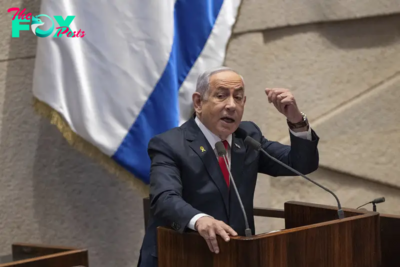World News
U.N. Security Council Passes Gaza Ceasefire Resolution After U.S. Abstains for the First Time
The U.N. Security Council passed a resolution on Monday demanding an immediate ceasefire in Gaza for the duration of the Islamic holy month of Ramadan as well as the unconditional release of all hostages. The resolution, which passed to widespread applause, is the first to be approved by all U.N. Security Council members after four previous attempts during the past five months of war. The U.S., which vetoed three previous resolutions and put forward its own failed proposal last week, abstained. U.N. Security Council resolutions are binding on member states, though it remains unclear how it will be enforced.
Despite some efforts to take U.S. edits to the resolution into account, U.S. ambassador to the U.N. Linda Thomas-Greenfield said that the U.S. “did not agree with everything in the resolution,” most notably its failure to include explicit condemnation of Hamas. “For that reason, we were unfortunately not able to vote yes.”
Read More: Why Biden Proposed a U.N. Ceasefire Resolution That Was Vetoed by Russia and China
The U.S.’s decision to abstain from the resolution comes amid heightened tensions between the Biden Administration and the Israeli government, the latter of which has been unwilling to heed international calls for greater humanitarian access to Gaza, where experts warn that famine is imminent. Israeli Prime Minister Benjamin Netanyahu has also rebuffed the Biden administration’s warnings against launching a ground invasion on Gaza’s southernmost city of Rafah, where more than 1 million Palestinians are currently sheltering. Although President Biden invited an Israeli delegation to Washington this week to discuss alternative approaches to a ground invasion, Netanyahu threatened to cancel those meetings if the U.S. didn’t veto the resolution. After the resolution passed, Netanyahu’s office announced that the delegation would not leave for Washington as scheduled. White House spokesperson John Kirby told reporters that the Biden Administration is "very disappointed about Netanyahu's decision not to send his advisers for talks at the White House about the Rafah operation."
While human-rights organizations have praised the resolution’s passage, many of them, such as the International Rescue Committee, continue to call for a sustained ceasefire beyond Ramadan, which is due to end in just two weeks.
More from TIME
-

 World News1d ago
World News1d agoWorld’s Best Brands – Brazil
-

 World News2d ago
World News2d agoWorld’s Best Brands – India
-

 World News2d ago
World News2d agoInternational Criminal Court Issues Arrest Warrants for Netanyahu and Hamas Commander
-

 World News2d ago
World News2d agoLandmark Bill to Ban Children From Social Media Introduced in Australia’s Parliament
-

 World News2d ago
World News2d agoAmerican and Australian Tourists Die in Laos After Drinking Tainted Alcohol
-

 World News2d ago
World News2d agoSee Photos of the Seventh Volcanic Eruption on Iceland’s Reykjanes Peninsula in 12 Months
-

 World News2d ago
World News2d agoMuhammad Yunus on the Race to Build Bangladesh 2.0
-

 World News3d ago
World News3d agoU.S. Charges Indian Billionaire Gautam Adani With Defrauding Investors





















